[CCTV Review] It is difficult to take a taxi, and it is expensive to take a taxi. What is the problem with online car-hailing?
CCTV News:Recently, "it’s hard to get a taxi, but it’s expensive" has become a hot topic in Moments. Many people complain that it has become difficult to get a taxi through online ride-hailing platforms such as Didi during morning and evening peaks and even many traditional off-peak hours. To increase the probability of a successful ride-hailing, you often have to increase the price. Some people even changed the slogan of Didi’s taxi to "Didi, increase the price immediately". Let’s see what everyone has experienced:
Beijing resident Xiong said that two days ago, she refreshed her taxi waiting time: for more than 70 minutes, whether it was through Didi and other platforms to call a car or stop a car on the side of the road, it was unsuccessful.
Xiao Liu recently gave up taking a taxi directly. She felt that the Didi platform did not force the delivery of orders, so some drivers did not accept orders when they heard that they did not want to go, or they had to increase the price when they waited. This actually made it convenient for drivers to choose to "refuse".
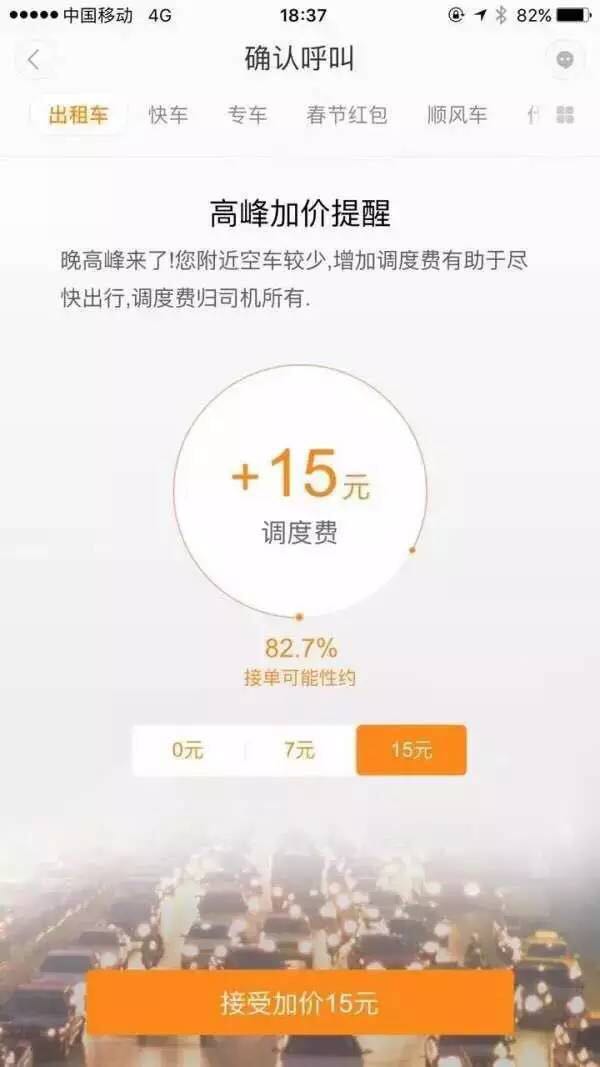
According to netizens, not only Beijing, but also Shanghai, Hangzhou, Shenzhen and other places have recently encountered the problem of "difficult and expensive taxi hailing" that has not been mentioned for a long time.
@He said his name was Millet: Tell me a real story, last night the company’s annual meeting ended around 10:30, when the Didi platform had already turned to 2.x times. The starting price of the express train was 20 to 48, and no one took the order without increasing the fare of the taxi. The increase of 15 yuan took the order. It usually took more than 50 yuan to get home on the road of five or six kilometers. It was already half past eleven!
@Ma Chujun: Shanghai’s Didi taxi is the same as neurosis recently. Not to mention that you can’t get a car, you must increase the price to 100 for the usual 40 yuan journey before someone can take the order. You are going to heaven!
@Chanshowhaa: There are obviously n taxis nearby, but it shows that the taxis are no longer available. You have to make an appointment 50 minutes later! At this time, the screen directly pops up the express button and increases the price by 1.6 times! Consumers are not stupid!
Didi responds: Changes in supply and demand make it difficult to take a taxi
In response, Didi responded that from the background data of Didi, drivers went home early this year and their capacity declined. In two hand-drawn charts on "Didi online driver data" and "Beijing order demand", it can be seen that compared with January 10, the number of online drivers decreased by about 25% on January 20, while the number of travel orders rose by 30% over the same period.
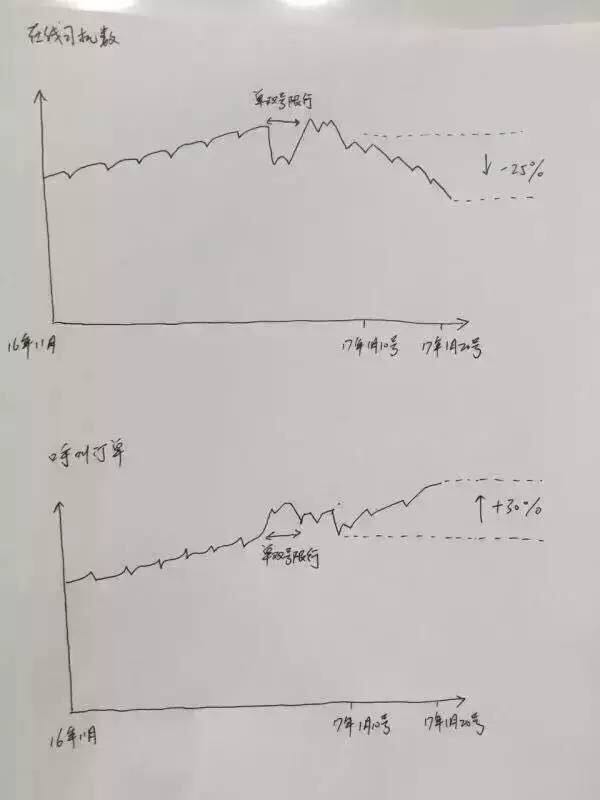
However, many people disagree with such a response. Drivers go home every year for the Chinese New Year, not because of the phenomenon of online car-hailing platforms. If it is difficult to get a taxi every year around the Spring Festival, then now with online car-hailing platforms, it is not only difficult to get a taxi, but also have to bear high prices. Is this kind of online car-hailing really what we need?
CCTV Review
The online car-hailing price increase model is to a certain extent "disguised price increase"
In the face of netizens complaining that it is difficult and expensive to take a taxi, it needs to be discussed from multiple levels.
First of all, people complain that taxis are expensive, and there must be an implicit sentence: "regular price" taxis are not available. The market price of online taxi-hailing is liberalized, and the price of cruise taxis is regulated, but the price of online taxi-hailing is being transmitted to cruise taxis.
It is not difficult for careful people to find that when the vast majority of cruise taxis connect to ride-hailing platforms such as Didi, there are fewer and fewer taxis that are really empty for recruitment. The price of online car-hailing, especially for short-distance online car-hailing, has actually made taxi prices "marketized" to a certain extent because of the "fare increase model". In other words, taxi prices have been hidden and risen! From a practical point of view, this is at odds with the relevant regulations of "government-guided prices for cruise car freight".Through platform technology, you can bypass the hearing to achieve disguised price increases? You can hear the ups and downs of public opinion here. If so, this requires regulatory efforts. Technology cannot become a disguised price increase vest, and Internet ? taxis cannot become Internet ? money.
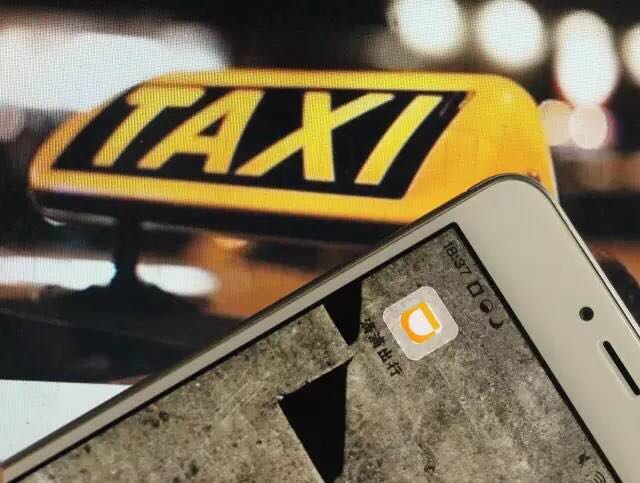
Whether it is related to the dominance of the platform requires the regulatory authority to verify and act as
Secondly, from the perspective of economic principles, it is difficult and expensive to take a taxi for two reasons. One is the shortage of supply, and the other is the artificial price increase caused by monopoly. If it is only the relationship between supply and demand, it is obviously difficult to fully explain why there will be price increases during off-peak hours to get a taxi.
The dominance of the current online ride-hailing platform is well known. An article on the Internet has pointed out that the recent difficulty of hailing a taxi and the high cost of hailing a taxi are also inseparable from the "dispatch order logic". Under the Didi dispatch order logic, the mentality of taxi drivers who connect to Didi to stand still and wait for passengers to continuously increase their tips is common. The end result is that passengers repeatedly increase the fare to get a car, wasting time and money while damaging the efficiency of passenger transportation. If this statement is consistent with the facts, the difficulty and high cost of hailing a car are related to the dominance of the online ride-hailing platform. This also requires regulatory action.
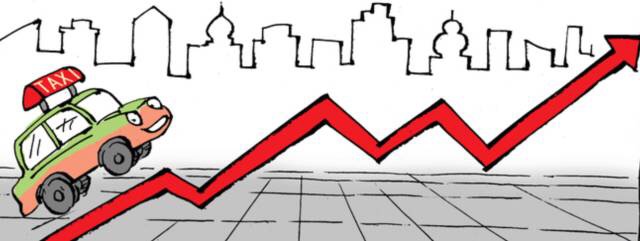
What should I do if solving the "travel difficulty" does not mean solving the "taxi difficulty"?
Once again, in the long run, the cost and difficulty of taking a taxi may only be superficial. The core of the problem should be how to solve the travel problem.
Public: Hope taxi is convenient, cheap and smooth
From the perspective of the public, of course, I don’t want it to be difficult to get a taxi. The perfect travel in the eyes of a taxi driver is probably: taxi, cheap, not congested, and free (free access to the market for online car-hailing). But this is an "impossible quadrilateral" that cannot be realized simultaneously with a plump ideal and a sense of reality. The existing traffic pattern of the city is not a blank sheet of paper, the urban network cannot be optimized in a short time, and the use intensity of private cars cannot be compressed. Under such constraints, the free entry of online car-hailing, the car price is low, but the "smooth road" is likely to be more congested; conversely, if you want to ensure the smooth road, you need to implement quantity control of cars or increase the cost of car use through market-oriented means, and either situation will make the taxi driver blocked.
Manager: Limited road resources, prioritize the development of public transportation
In the eyes of local government officials and road traffic managers: online car-hailing is a new thing that is conducive to social development, but the limited road resources of the city cannot withstand the public taking a taxi to travel, and the priority development of public transportation is the focus of development; online car-hailing and taxi prices will only over-mobilize the demand for taxis. In short, taxis and online car-hailing are only and can only be supplements to urban public transportation. It is under this logic that the Ministry of Transportation’s "Interim Measures for the Management of Online Booking Taxi Business Services" calls for the orderly development of online car-hailing in accordance with the principles of high-quality service and differentiated management, and only then can Beijing "give full play to the leverage of freight rates to adjust the supply and demand relationship of the taxi transportation market".
However, if this logic is true, the price increase of high-end online car-hailing is naturally in line with economic laws, but even if the taxi price increases, it should be realized after going through legal procedures, that is, it needs to go through the hearing process. It is not possible to use technical means or the so-called dispatch logic to essentially empty the procedural justice.
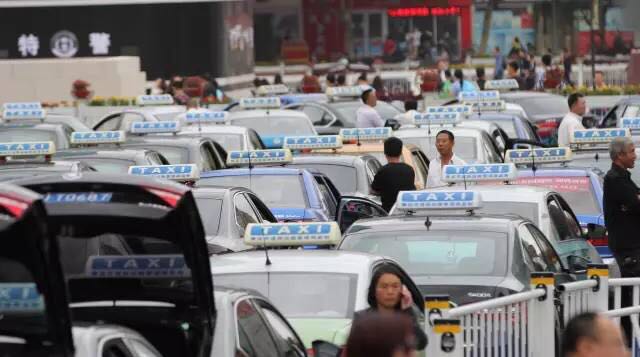
Hitchhiking and carpooling need the help of online car-hailing platforms
Finally, from the experience of Japan and other countries, although the number of private cars is high, the use intensity is not high. While developing public transportation, there is room to improve the use efficiency of private cars, which itself requires online car-hailing platforms to assist.
Beijing and Shanghai have no restrictions on ride-sharing and carpooling, and these two forms that truly reflect the spirit of sharing actually have a lot of room for development. This is also to help solve the problem of travel difficulties by improving the efficiency of use under the condition that the stock remains unchanged.
Otherwise, from the perspective of the situation of cruise taxis, the online car-hailing platform will not only fail to solve the problem of difficult and expensive taxis, but also may not be able to improve the efficiency of passenger transportation (if the order is logical). Instead, it will bring about an increase in taxi prices. The benefits of such online car-hailing to society are really limited. Because people can’t help but ask, what do you need an online car-hailing platform to do? Don’t go directly to the street to stop a car and try your luck!
Article | CCTV Commentary Contributor, Noyama